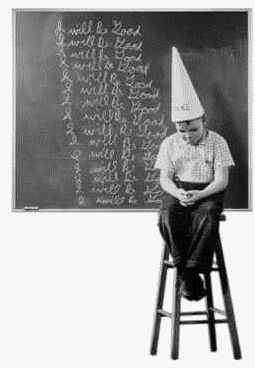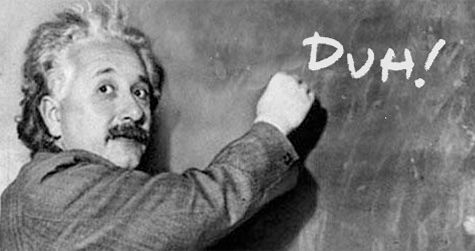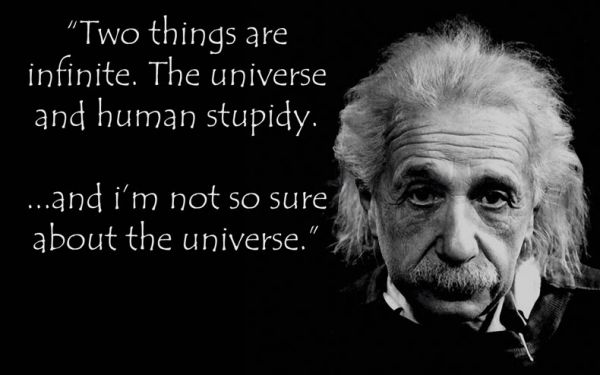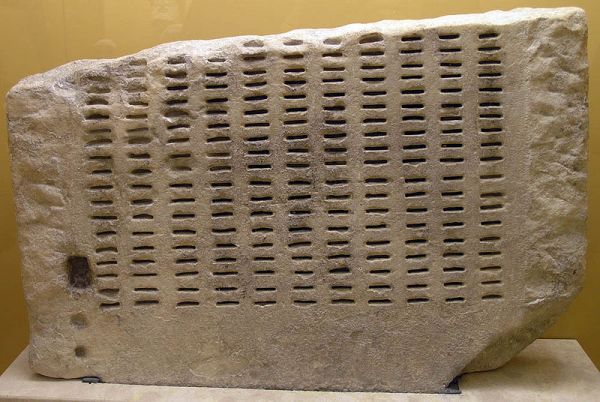 by Marc Abrahams
by Marc AbrahamsThe basic laws of human stupidity are ancient. The definitive essay on the subject is younger. Called “The Basic Laws of Human Stupidity,” it was published in 1976, by an Italian economist:
Basic Laws of Human Stupidity, Carlo M. Cipolla,Cipolla, Stupidity’s Incisive Analyst
The Mad Millers, 1976.
Carlo M. Cipolla taught at several universities in Italy, and for many years at the University of California, Berkeley. He also wrote books and studies about clocks, guns, monetary policy, depressions, faith, reason, and of course (he being an economist) money. His essay about stupidity encompasses all those other topics, and perhaps all of human experience.
The Laws of Stupidity
Professor Cipolla wrote out the laws in plain language. They are akin to laws of nature—a seemingly basic characteristic of the universe. Here they are:
• Always and inevitably everyone underestimates the number of stupid individuals in circulation.
• The probability that a certain person be stupid is independent of any other characteristic of that person.
• A stupid person is a person who causes losses to another person or to a group of persons while himself deriving no gain and even possibly incurring losses.
• Non-stupid people always underestimate the damaging power of stupid individuals. In particular non-stupid people constantly forget that at all times and places and under any circumstances to deal and/or associate with stupid people always turns out to be a costly mistake.
Cipolla’s essay gives an x-ray view of what distinguishes countries on the rise from those that are falling.
Countries moving uphill have an inevitable percentage of stupid people, yes. But they enjoy “an unusually high fraction of intelligent people” who collectively overcompensate for the stupid.
Declining nations have instead an “alarming proliferation” of non-stupid people whose behavior “inevitably strengthens the destructive power” of their persistently stupid fellow citizens. There are two distinct, unhelpful groups: “bandits” who take positions of power which they use for their own gain, and people out of power who sigh through life as if they are helpless.
Carlo Cipolla died in 2000, just a year after two psychologists at Cornell University in the U.S. wrote a study called “Unskilled and Unaware of It: How Difficulties in Recognizing One’s Own Incompetence Lead to Inflated Self-Assessments.” Without mentioning any form of the word “stupidity”, it serves as an enlightening and dismaying supplement to the basic laws. (The authors of “Unskilled and Unaware of It” were awarded the 2000 Ig Nobel Prize in psychology.)

Cipolla’s Work Inspired an Insight About Politicians
Many years after Professor Cipolla’s death, inspired by his work on stupidity, three scientists came up with an improved way to choose politicians. They applied a bit of modern mathematics to an old Athenian principle of democracy. The result: governments that more efficiently produce laws that benefit society.
This was the same team that had won the 2010 Ig Nobel Prize in management. Before looking at how “The Laws of Stupidity” influenced their subsequent, post-Ig Nobel work, let’s take a look back at what they did that earned that Ig Nobel Prize.
Background: Random-Promotion Discoveries, Now and Then
The team—Alessandro Pluchino, Andrea Rapisarda, and Cesare Garofalo of the University of Catania, Sicily—won its Ig Nobel Prize for demonstrating mathematically that organizations would become more efficient if they promoted people at random.
Pluchino, Rapisarda, and Garofalo calculated how a pick-at-random promotion scheme compares with other, more enshrined methods. They gave details in a monograph published in the journal Physica A:
“The Peter Principle Revisited: A Computational Study,” Alessandro Pluchino, Andrea Rapisarda, and Cesare Garofalo, Physica A: Statistical Mechanics and its Applications, vol. 389, no. 3, February 2010, pp. 467–72.
 Pluchino,
Rapisarda, and Garofalo based that work on the Peter Principle—the
notion that many people are promoted, sooner or later, to positions that
overmatch their competence. But their research was neither the
beginning nor the end of the story of how bureaucracies try—and fail—to
find a good promotion method.
Pluchino,
Rapisarda, and Garofalo based that work on the Peter Principle—the
notion that many people are promoted, sooner or later, to positions that
overmatch their competence. But their research was neither the
beginning nor the end of the story of how bureaucracies try—and fail—to
find a good promotion method.Their paper cited the works of other researchers who had taken tentative, exploratory steps in the same direction. But it failed to mention an unintentionally daring 2001 study by Steven E. Phelan and Zhiang Lin at the University of Texas at Dallas:
“Promotion Systems and Organizational Performance: A Contingency Model,” Steven E. Phelan and Zhiang Lin, Computational and Mathematical Organization Theory, vol. 7, 2001, pp. 207–232.Phelan and Lin wanted to see whether, over the long haul, it pays best to promote people on supposed merit (we try, one way or another, to measure how good you are), on an “up or out” basis (either you get promoted quickly or you get the boot), or by seniority (live long, and by that measure alone you will prosper). As a benchmark—a this-is-as-bad-as-it-could-possibly-get alternative—they also looked at what happens when you promote people at random. They got a surprise: random promotion, they admitted, “actually performed better than” almost every alternative. Phelan and Lin seemed (at least in my reading of their 25-page-long paper) almost shocked and intimidated by what they found.

Where Pluchino, Rapisarda, and Garofalo would later, independently, hone and raise this discovery for the world to admire, Phelan and Lin merely muttered, ever so quietly in the middle of a long paragraph, that “this needs to be further investigated in our future studies.” Then, by and large, they moved on to other things.
Humans beings, many of them, are clever. Always there is potential to devise a new, perhaps better method of choosing which individuals to promote in an organization.
In 2010, just a few days after the Catania team was awarded their Ig Nobel prize, Phedon Nicolaides of the European Institute of Public Administration, Maastricht, The Netherlands, suggested what he sees as an improvement on random promotion: randomly choose the people who will make the promotion decisions. Professor Nicolaides published his scheme in a newspaper in Cyprus.
“How Promoting the Incompetent Increases Efficiency,” Phedon Nicolaides, Cyprus Mail, October 10, 2010.Another, very different and non-random method was devised for use by the United States Air Force. Details appear in a 170-page-long paper prepared in 2008 by Michael Schiefer, Albert Robbert, John Crown, Thomas Manacapilli, and Carolyn Wong of the RAND Corporation. Regardless of its merits, that Air Force scheme may be doomed to rejection purely because it has a curious name. The report is called “The Weighted Airman Promotion System”:
“The Weighted Airman Promotion System. Standardizing Test Scores,” Michael Schiefer, Albert A. Robbert, John S. Crown, Thomas Manacapilli, and Carolyn Wong, RAND Corporation, 2008.
 Why to Choose Politicians Randomly
Why to Choose Politicians RandomlyDemocracies would be better off if they chose some of their politicians at random. That’s the word, mathematically obtained, from the Catanians’ extension of their random research, using insights they gleaned from the much earlier stupidity work by Cipilla.
Parliamentary voting behavior echoes, in a surprisingly detailed mathematical sense. Cipolla had sketched this in the “Basic Laws of Human Stupidity.” Cipolla gave an insulting, yet possibly accurate, description of any human group: “human beings fall into four basic categories: the helpless, the intelligent, the bandit, and the stupid.”
Pluchino, Rapisarda, Garofalo and their colleagues base their mathematical model partly on this fourfold distinction. Pluchino, Rapisarda, Garofalo, and two other colleagues at the University of Catania published their new study in the same research journal—a physics journal—that had introduced their random-promotion work. The new study itself is:
“Accidental Politicians: How Randomly Selected Legislators Can Improve Parliament Efficiency”, Alessandro Pluchino, Caesar Garofalo, Andrea Rapisarda, Salvatore Spagano, and Maurizio Caserta, Physica A: Statistical Mechanics and its Applications, vol. 390, nos. 21–2, October 15, 2011, pp. 3944–54.The team made a simple calculation model that mimics the way modern parliaments work, including the effects of political parties or coalitions.
In the model, individual legislators can cast particular votes that advance either their own interests (one of which is to gain re-election), or the interests of society as a whole. Party discipline comes into play, effecting the votes of officials who got elected with help from their party.
But when some legislators have been selected at random—owing no allegiance to any party—the legislature’s overall efficiency improves. That higher efficiency, the scientists explain, comes in “both the number of laws passed and the average social welfare obtained” from those new laws.
The math indicates that parliaments work best when some—but not all—of the members have been chosen at random. The study explains how a country, subject to the quirks of its own system, can figure out what mix will givethe best results.
The Historic Roots of Random Politician-Selection
Random selection may feel like a mathematician’s wild-eyed dream scheme. It’s not. The practice was common in ancient Greece, when democracy was young. The study tells how, in Athens, citizens’ names were placed into a randomization device called a kleroterion.
 Kleroterion. (Image credit: Wikipdia user Marsyas)
Kleroterion. (Image credit: Wikipdia user Marsyas)Athens, way back when, used random selection to people its juries. So, still, does much of the world.
Old Wisdom Applied Anew in Mid-Ocean
And it’s not just juries. Iceland, having survived a financial collapse, is drawing itself up a new constitution. For advice on that, the nation assembled a committee of 950 citizens chosen at random.
That financial collapse was related, by the way, to the research work performed, perhaps not
entirely knowingly, by the people who were awarded the 2009 Ig Nobel Prize in economics. That prize was awarded to the directors, executives, and auditors of four Icelandic banks—Kaupthing Bank, Landsbanki, Glitnir Bank, and Central Bank of Iceland—for demonstrating that tiny banks can be rapidly transformed into huge banks, and vice versa—and for demonstrating that similar things can be done to an entire national economy. For details, see:
“Report of the Special Investigation Commission,”
issued April 12, 2010 in Reykjavík, Iceland.

No comments:
Post a Comment